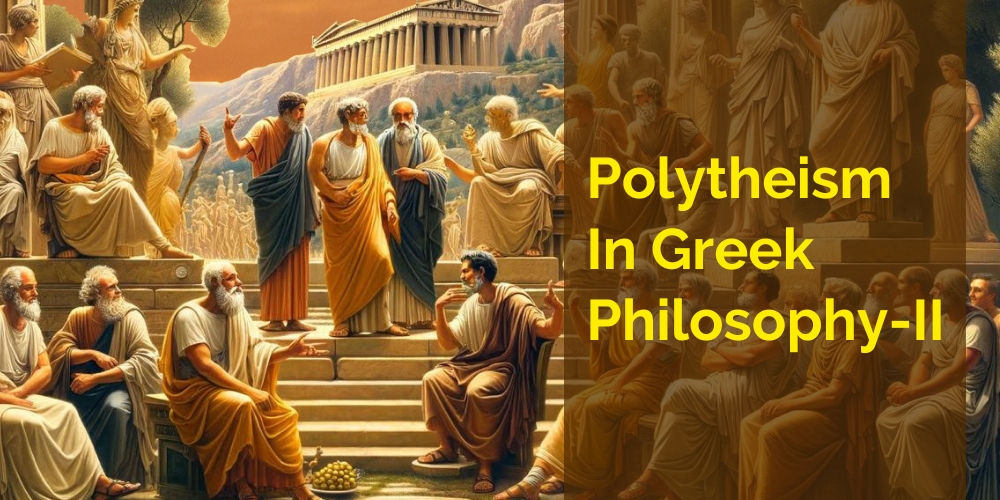
Polytheism in Greek Philosophy-II
Dive into the depths of ancient Greek philosophy in our unique online course, blending polytheist devotion with philosophical inquiry. From the Presocratics to Plato and Aristotle, uncover how classical thinkers contributed to the “Olympian project,” enriching our understanding of the cosmos through a polytheistic lens. This course offers a fresh perspective on Greek philosophy, revealing its enduring relevance and divine underpinnings. No previous coursework required—ideal for anyone seeking to explore the rich intersection of faith and reason in ancient Greece.
Join us and discover the divine wisdom of the ancients. Enroll now!
Faculty
6 April 2024 - 3 August 2024
8:00 PM IST-9:00 PM IST
Every Saturday (Except May 18th)
Introduction
Welcome to the second module of our journey through “Polytheism in Greek Philosophy.” Building upon the foundational concepts explored in our first module—where we delved into the philosophy within Hellenic theology through the mythological poets, particularly focusing on Zeus’s regime and the “Olympian project”—this module aims to deepen our understanding. We will explore how classical Greek philosophers embraced and propelled the Olympian project, engaging in philosophy as a form of polytheist devotion. Our journey begins with the Presocratic philosophers, exploring the notions of elements and principles as a means to understand causality. We then move on to a thorough examination of Plato’s philosophy, integrating physical, ethical, and spiritual dimensions in a rational yet non-reductive manner. Finally, we delve into post-Platonic movements, setting the stage for our subsequent exploration in Late Antiquity, including Aristotle and the early Stoics’ philosophies of Being. This module reinterprets Greek philosophy, not as a challenge to polytheism but as a vibrant expression within it, aiming to cultivate the divine within ourselves in harmony with the Gods, not that we may take the place of the Gods, but that we may participate as fully as possible in Their blessed way of being.
Course Objectives
This course carries forward the plan for the series by investigating the nature of philosophical inquiry in classical Greece and the fundamental doctrines of the classical Greek philosophers in the light of Hellenic polytheism.This course is designed to stand on its own, making it accessible to those who have not participated in the first module.
Course Outcomes
By the end of this course, students will have a solid understanding of Hellenic metaphysics and its relationship with the sacred cosmos of ancient Greece.
Course Syllabus
- The Presocratics: Exploration of Elements and Principles.
- Plato’s Integral Vision: Discussing Immortality and Form; Cosmic Causality; and Henology.
- Aristotle & the Early Stoics: Examining Being and its Forefront.
Reading List
- Selected fragments of the Presocratic philosophers
- Plato, selected dialogues including the Phaedo, the Phaedrus, the Timaeus, the Parmenides and the Philebus
- Selections from Aristotle’s Metaphysics and selected fragments of the early Stoics
Course includes
- Live sessions
- Access to class recordings for asynchronous participation
- Certificate of Completion upon successful course completion

